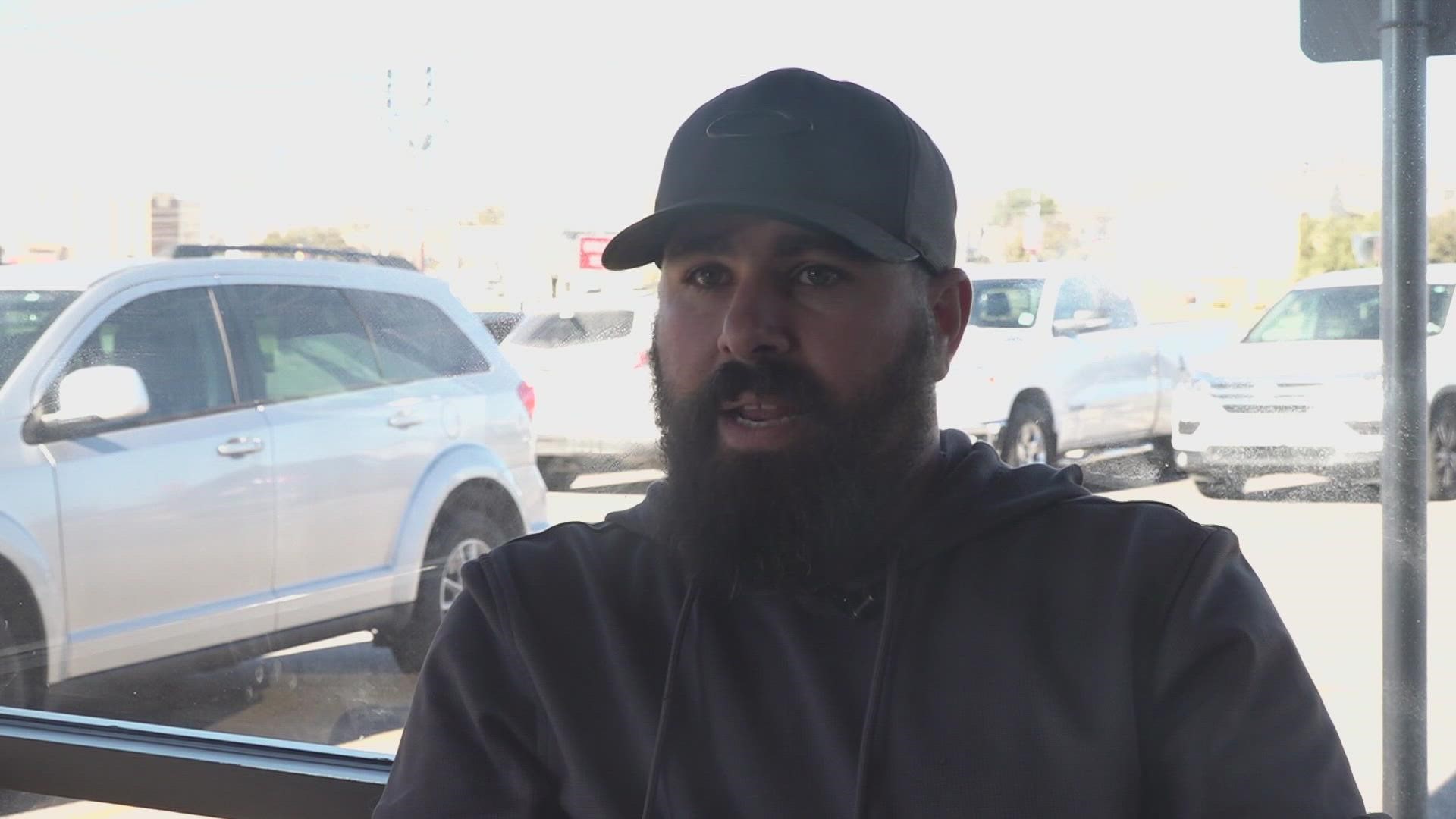TEMPLE, Texas — Editor's Note: A previous version of this story did not include a statement from the Temple Veterans Affairs Office.
Eric Rossner is a military vet who's been hard at work for the past few years.
However, being a truck driver after serving meant he spent a lot of time away from his family. So, he wanted to change that.
"Being that I was in the military for 10 years, I've got kids and that really took a toll on my kids, you know, me being away in the military. And so, doing the same thing as a truck driver really took a toll on my kids as well," he said.
He finally found work that would allow him to see his family more, and most recently found a new job that would pay him more and still leave him free on weekends to be with his kids.
The only requirement was that he provide the new job with a doctor's signature, seeing as he has three traumatic brain injuries on his medical record.
He didn't anticipate the challenges that would lie ahead.
"That's when it popped up. Hey, we need a signature from your doctor because of your traumatic brain injuries. And I didn't think that it was going to be difficult," Rossner said.
"They wanted to make me wait till March, which, trying to start a job immediately I can't wait until March. You know, then that's not beneficial to me where my family is here."
Rossner says the system has always been this way. In fact, according to a recent study, among VHA facilities, veterans waited an average of 29 days for a primary care appointment. Rossner was well over that mark, having to wait up to to months, which he says he couldn't afford to do.
Canaan Brumley with the Public Affairs Office at the Temple VA said while he could not comment specifically on Rossner's case, the VA considers every veteran a priority.
"We do our level best every day to make sure these veterans are taken care of and we go above and beyond that," said Brumley.
Now Rossner is looking to be a voice for the voiceless.
"There's countless others with much more serious situations than mine. My issue was small but it's time to step up and speak out to change the system," he said.
He says he's calling for the VA to change their ways to help out the next guy who may not be as lucky as he was to find help by other means.
"The civilian sector took care of me. I'm good to go. But for the next guy, you know, that's why I'm doing this," Rossner said. "Next man up mentality is what about the next guy that comes forward? And if we're gonna make change in the system, those that are being ignored and those that are being pushed to the side, they need to come forward and they need to make their voices heard because that's the only way we're really going to move forward you know, and start seeing change in the system."

